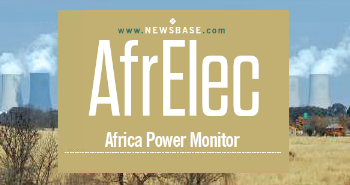Mali's junta signs nuclear and solar energy deals with Russia's Rosatom
Mali's ruling military junta has signed three cooperation deals with Russia's state nuclear company, Rosatom.
On July 10, Rosatom announced that agreements were signed following meetings on July 2 and 3 between its representatives and Mali's junta leader, Assimi Goita.
The deals focus on developing a Russian-designed low-power nuclear power plant (NPP) in Mali, along with projects in solar power generation and geological exploration.
Russia has grown closer to Mali in recent years, especially following the 2021 coup d'état that saw Goita overthrow President Bah Ndaw.
Africa's sole operational nuclear power station is currently the Koeberg plant in South Africa. These new agreements represent yet another advancement in Rosatom's long-term strategy to expand its influence and business operations in Africa.
Currently, Rosatom controls approximately 70% of the world export market for the construction of NPPs where emerging powers in the global south are trying to boost their energy production and turning to Moscow for nuclear power plants and fuel.
In recent years, the company has significantly increased its presence across the continent, establishing a foothold in countries such as Burkina Faso, Guinea, Nigeria, and Tanzania.
In 2015, Russia agreed to extend a $25bn loan to Egypt to underwrite the El Dabaa project, the first NPP in the country. The 4.8GW project comprising four 1.2GW Russian pressurised water reactor (PWR) units will be owned by the Egyptian Nuclear Power Plants Authority (NPPA). Rosatom will develop the $30bn facility
Regarding Mali, Rosatom has not disclosed any details or specifications about the strategic project to build a Russian-designed low-power NPP. However, the company mentioned that both countries have “agreed to continue maintaining close contacts and periodically coordinate positions as joint work progresses.”
Despite Rosatom's significant successes, its history in Africa has not been without challenges. One prominent example is the stalled 9,600-megawatt nuclear power deal between South Africa and Russia in 2017. This agreement faced legal obstacles during the administration of former President Jacob Zuma.



Follow us online